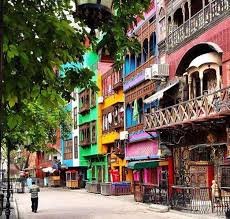Traveling solo as a woman in Pakistan can be both deeply enriching and uniquely challenging. The country is filled with stunning natural beauty, warm hospitality, and ancient culture—but navigating it as a solo female traveler requires preparation, cultural sensitivity, and a bit of local insight. Whether you’re planning to trek through Hunza, explore the streets of Lahore, or discover hidden valleys in Swat, this guide offers 1,000 words of practical advice and encouragement drawn from local experience.
1. Understand the Cultural Landscape
Pakistan is a conservative society with deep-rooted traditions, particularly in rural areas. While urban centers like Islamabad, Lahore, and Karachi are more relaxed, it’s still essential to observe cultural norms.
Key tips:
- Dress modestly: Loose-fitting clothes that cover arms and legs are recommended.
- Use a dupatta or scarf in religious or rural areas.
- Avoid physical contact with men, even handshakes, unless initiated by them.
Understanding and respecting local customs will go a long way in earning respect and making your journey smoother.
2. Choose Your Destinations Wisely
Some regions are more welcoming and easier to navigate for solo female travelers. Here are recommended areas:
Safe & Friendly Destinations:
- Hunza Valley: Known for its high literacy rates and progressive community.
- Skardu: Stunning landscapes and respectful local culture.
- Islamabad: Clean, green, and manageable for a solo visitor.
- Lahore: A cultural hub with vibrant food, art, and history.
Areas to Avoid Without Guidance:
- Some tribal regions near the Afghanistan border.
- Rural parts of Balochistan (require NOC and escort).
Always check local travel advisories and talk to other travelers or guides before venturing into offbeat locations.
3. Accommodation Options for Women
Women-only hostels are rare, but several guesthouses and boutique hotels cater well to solo women travelers. Look for properties with good reviews on safety and cleanliness.
Recommendations:
- Use booking.com or Airbnb to find verified properties.
- Contact the accommodation directly to confirm female-friendly facilities.
- Ask for a room away from busy street sides for added privacy.
In northern areas, family-run guesthouses often provide a safe and warm environment.
4. Dress the Part: What to Wear
You don’t need to wear a burqa, but modesty matters.
Wardrobe Suggestions:
- Long tunics or kurtas
- Loose jeans or shalwar kameez
- Scarf or dupatta (always carry one in your bag)
- Comfortable, closed shoes
In cities, you’ll find women in jeans and scarves. In villages, traditional attire is safer.
5. Transportation: Getting Around Safely
Intercity Travel:
- Daewoo Express and Faisal Movers offer women-only sections.
- Book seats next to female passengers if possible.
- For longer journeys, choose VIP or business class coaches.
Within Cities:
- Use Careem or Uber in cities like Lahore, Islamabad, and Karachi.
- Pink Rickshaws (in some cities) cater exclusively to female passengers.
- Sit in the back seat of taxis or ride-shares.
Pro Tip: Always share your live location with a friend or family member.
6. Food & Dining Tips
You can dine out alone in most places, though it’s more common in urban areas.
Tips:
- Choose family restaurants or cafes with female staff.
- Avoid secluded dhabas after dark.
- Ask hotel staff for female-friendly dining recommendations.
Try traditional dishes like biryani, nihari, chapli kebab, and lassi, but always be cautious with street food.
7. Making Connections Safely
Many Pakistani women are curious, friendly, and helpful. You may be invited to tea or even to stay with a local family.
Tips:
- Trust your instincts.
- It’s okay to politely decline offers that make you uncomfortable.
- Join Facebook groups like Female Pakistan Travelers or follow local travel bloggers for support.
8. Health & Hygiene on the Go
Public restrooms can be rare in remote areas, so plan accordingly.
What to Pack:
- Hand sanitizer
- Tissue packs or wet wipes
- Reusable water bottle (with filter if trekking)
- Feminine hygiene products (may not be available in remote towns)
Drink bottled or boiled water to avoid stomach issues.
9. Safety Essentials & Apps
Must-Haves:
- Copies of passport/CNIC
- Emergency contact list
- Power bank
- Local SIM card (Telenor or Zong work best in the north)
Useful Apps:
- Google Translate (Urdu & local dialects)
- Careem/Uber for transport
- Maps.me for offline navigation
- Find My Device (for phone tracking)
10. When in Doubt, Ask a Local Woman
Whether you’re lost, confused, or just curious, local women are often your best source of help. In markets, mosques, or on the street, women will usually assist or redirect you kindly.
Also, female-run businesses, community centers, and NGOs in tourist towns can be excellent hubs for safety and support.
Bonus Tips from a Local Female Traveler
- Fake wedding ring trick: Some women wear a ring to ward off unwanted attention.
- Code words: Learn a few key Urdu phrases like “Mujhe akela chhor do” (Leave me alone) or “Madad chahiye” (I need help).
- Confidence is key: Walk purposefully and look like you belong, even when unsure.
Conclusion
Solo female travel in Pakistan is not only possible—it’s incredibly rewarding. With the right mindset, preparation, and cultural respect, you’ll find yourself welcomed with open arms, cups of chai, and endless stories. From mountain valleys to ancient cities, Pakistan has a unique way of growing on travelers. And for the brave, curious woman ready to explore, it just might be the adventure of a lifetime.
